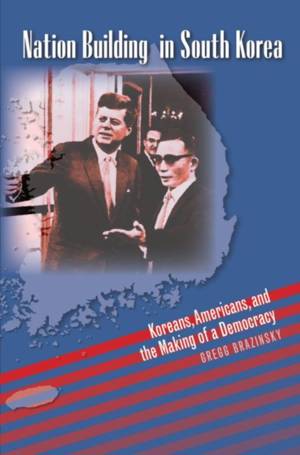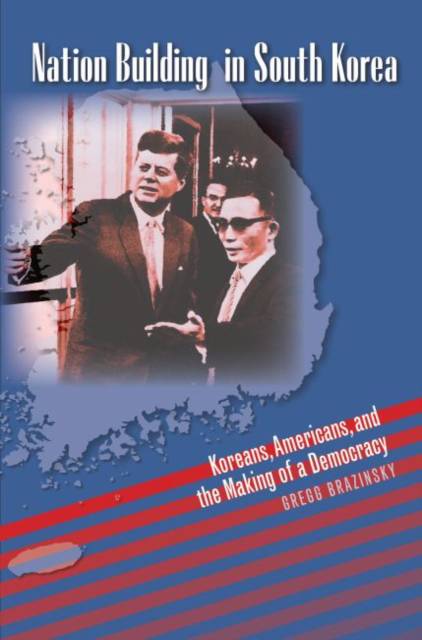
Bedankt voor het vertrouwen het afgelopen jaar! Om jou te bedanken bieden we GRATIS verzending (in België) aan op alles gedurende de hele maand januari.
- Afhalen na 1 uur in een winkel met voorraad
- In januari gratis thuislevering in België
- Ruim aanbod met 7 miljoen producten
Bedankt voor het vertrouwen het afgelopen jaar! Om jou te bedanken bieden we GRATIS verzending (in België) aan op alles gedurende de hele maand januari.
- Afhalen na 1 uur in een winkel met voorraad
- In januari gratis thuislevering in België
- Ruim aanbod met 7 miljoen producten
Zoeken
€ 60,95
+ 121 punten
Omschrijving
In this ambitious and innovative study Gregg Brazinsky examines American nation building in South Korea during the Cold War. Marshaling a vast array of new American and Korean sources, he explains why South Korea was one of the few postcolonial nations that achieved rapid economic development and democratization by the end of the twentieth century. Brazinsky contends that a distinctive combination of American initiatives and Korean agency enabled South Korea's stunning transformation. On one hand, Americans supported the emergence of a developmental autocracy that spurred economic growth in a highly authoritarian manner. On the other hand, Americans sought to encourage democratization from the bottom up by fashioning new institutions and promoting a dialogue about modernization and development.
Expanding the framework of traditional diplomatic history, Brazinsky examines not only state-to-state relations, but also the social and cultural interactions between Americans and South Koreans. He shows how Koreans adapted, resisted, and transformed American influence and promoted socioeconomic change that suited their own aspirations. Ultimately, Brazinsky argues, Koreans' capacity to tailor American institutions and ideas to their own purposes was the most important factor in the making of a democratic South Korea.
Expanding the framework of traditional diplomatic history, Brazinsky examines not only state-to-state relations, but also the social and cultural interactions between Americans and South Koreans. He shows how Koreans adapted, resisted, and transformed American influence and promoted socioeconomic change that suited their own aspirations. Ultimately, Brazinsky argues, Koreans' capacity to tailor American institutions and ideas to their own purposes was the most important factor in the making of a democratic South Korea.
Specificaties
Betrokkenen
- Auteur(s):
- Uitgeverij:
Inhoud
- Aantal bladzijden:
- 328
- Taal:
- Engels
- Reeks:
Eigenschappen
- Productcode (EAN):
- 9780807861813
- Verschijningsdatum:
- 1/09/2009
- Uitvoering:
- Paperback
- Formaat:
- Trade paperback (VS)
- Afmetingen:
- 142 mm x 226 mm
- Gewicht:
- 476 g

Alleen bij Standaard Boekhandel
+ 121 punten op je klantenkaart van Standaard Boekhandel
Beoordelingen
We publiceren alleen reviews die voldoen aan de voorwaarden voor reviews. Bekijk onze voorwaarden voor reviews.









